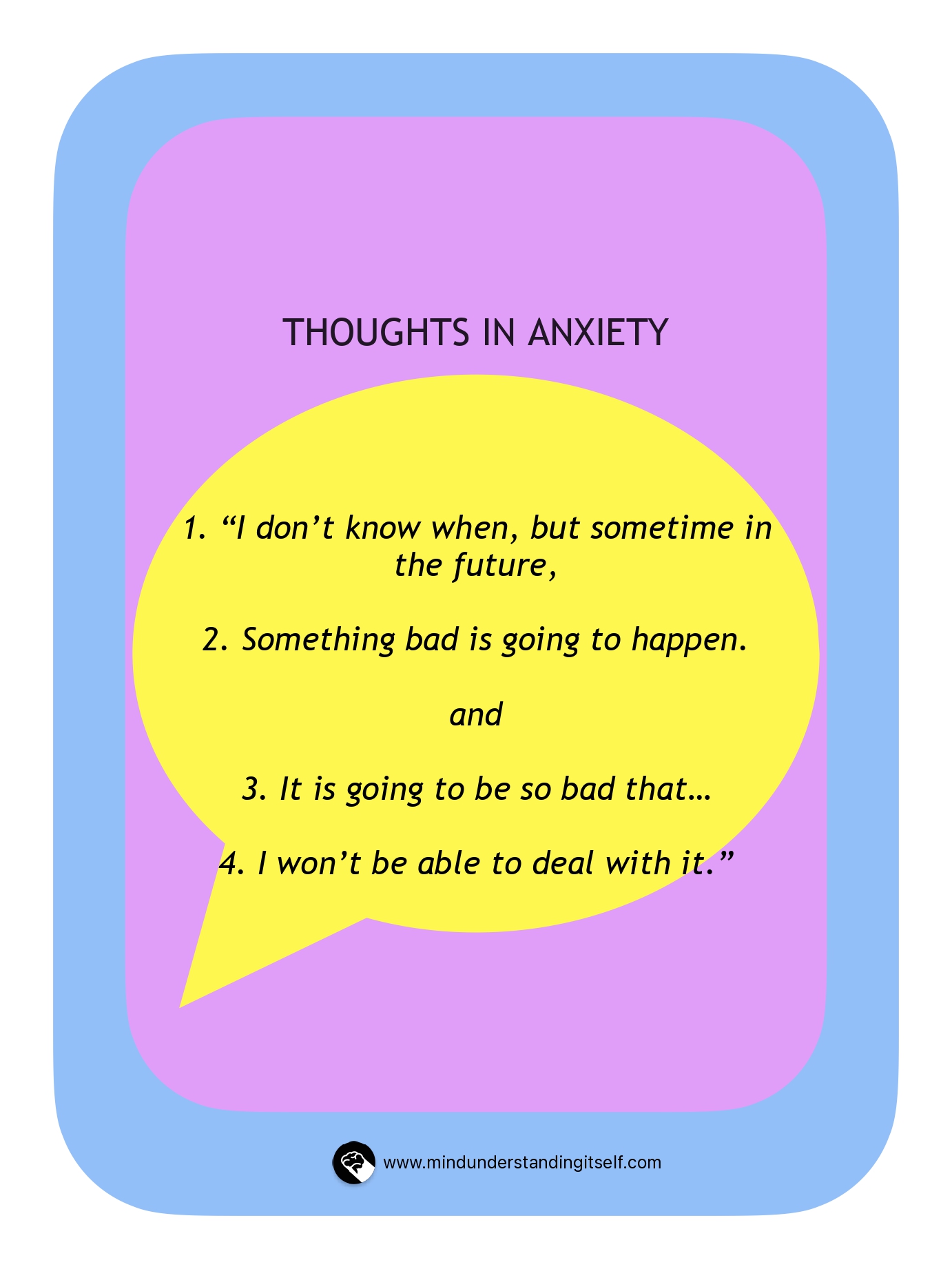When we feel anxious, we have certain automatic thoughts more frequently.
If you have noticed, our thoughts during anxiety will usually fit into this formula:

Also, when we are anxious, due to intense feelings of fear, we see the … Read More
When we feel anxious, we have certain automatic thoughts more frequently.
If you have noticed, our thoughts during anxiety will usually fit into this formula:

Also, when we are anxious, due to intense feelings of fear, we see the … Read More
Thousands of thoughts pass through the mind during a day. However, only some of these catch our attention while most cannot make their way into our consciousness. Moreover, we stay focused on some thoughts more when compared to others.
Then, … Read More
In one of our previous posts, we examined Maladaptive Assumptions in Cognitive Behavioral Therapy (CBT) and Techniques for Identifying Them. In this post, we share CBT techniques for challenging maladaptive assumptions.
As you might recall, … Read More
Maladaptive assumptions (also called underlying assumptions, intermediate beliefs, dysfunctional beliefs) in Cognitive Behavioral Therapy, are, as the names suggest, maladaptive/dysfunctional beliefs underlying automatic thoughts.
They are simply the rules behind our automatic thoughts.
As you … Read More
It is inarguably true that CBT is a very structured form of therapy, and, thus, it must be applied only by professionals who have been trained for it. Especially in clinical conditions, indeed, a professional help is indispensable.
However, still, … Read More
In one of our previous posts, “Can We Control Our Thoughts?”, we examined if it is possible to stop or control our thoughts. Here, I give an example of how to challenge an automatic thought about controlling our thinking.… Read More
… Read More“…There has been a machine installed in my head, and this machine has been continuously lining up thoughts, impressions, without a break. If I only had the control of this machine, if I only thought of the things I wanted,
John asked for our help for quiting smoking, and it has been a few sessions that we have been working together with him on this issue. In this session, we try to understand his need and desire to smoke when … Read More
You might already know what needs to be changed or you just have a sense that something in your life has to change, but you do not know what it is. Gilbert Chesterton said “Sometimes … Read More
Cognitive distortions is a concept from cognitive behavioral therapy, which implies that we usually tend to think in some biased way.
Normally, having cognitive distortions is neither a deficit nor a disorder, but it is just a by-product of how … Read More